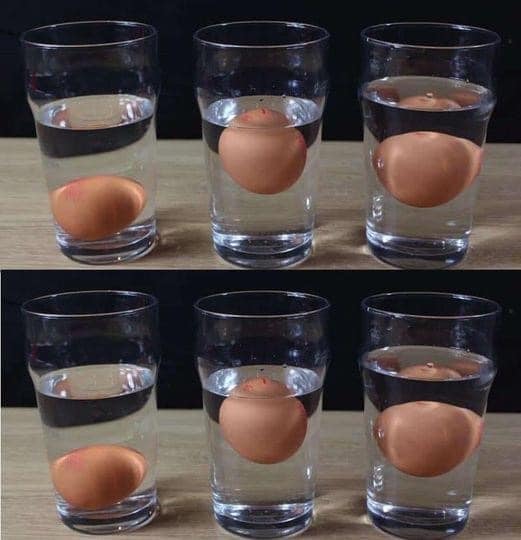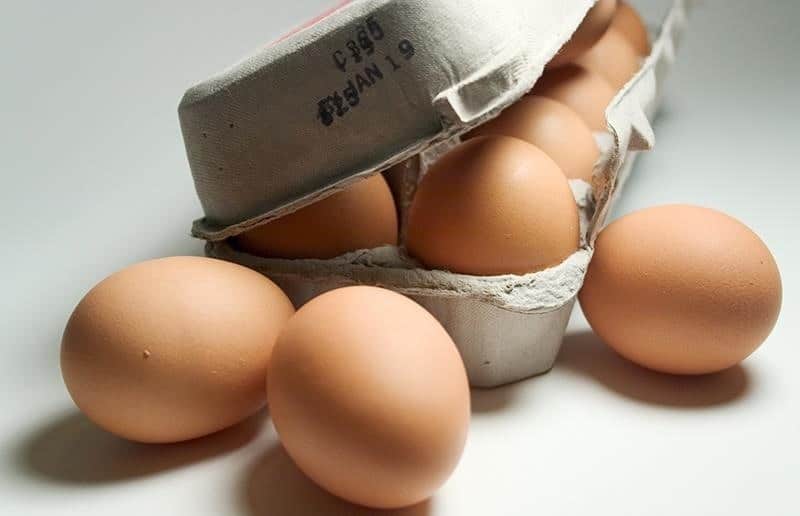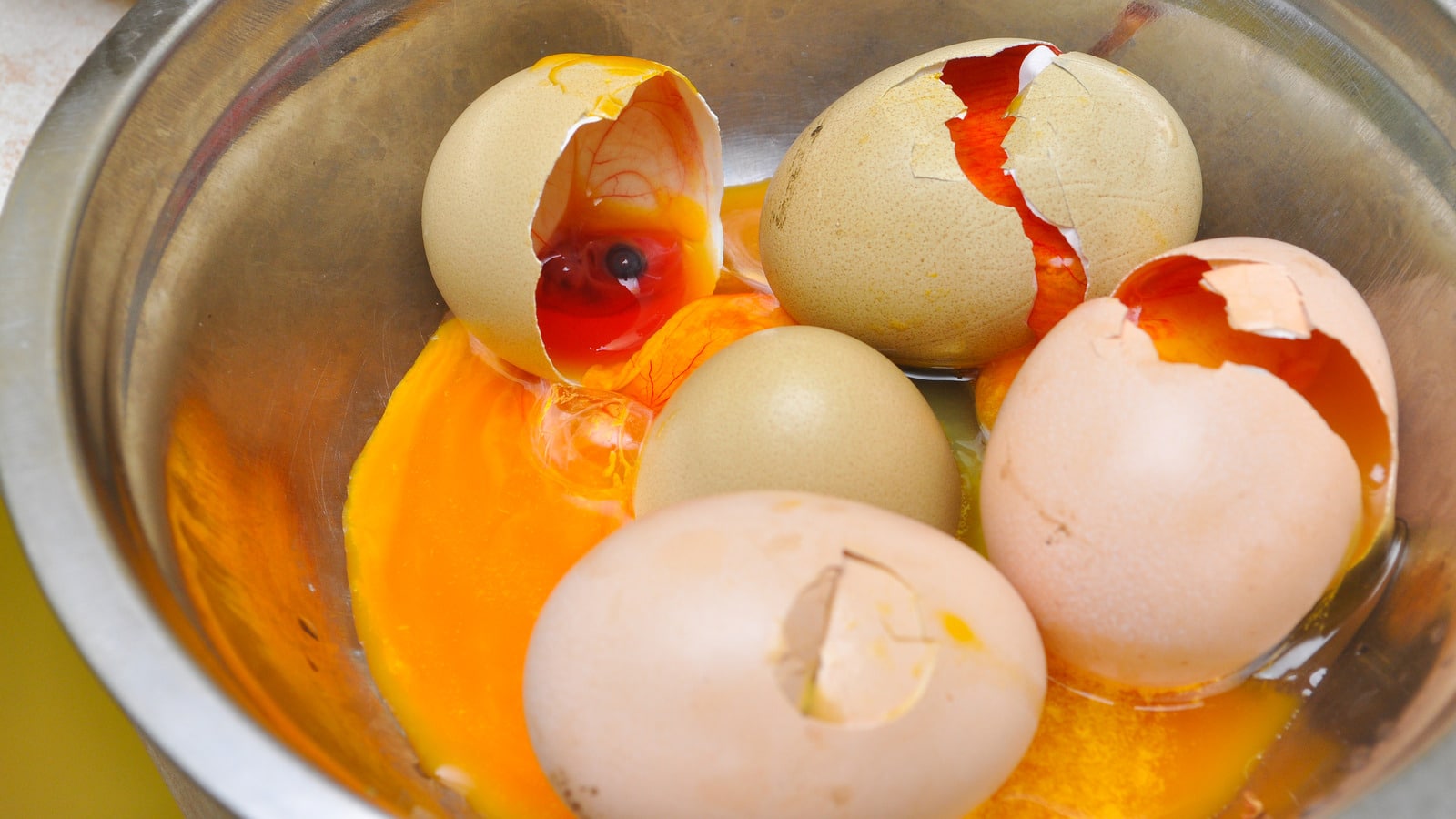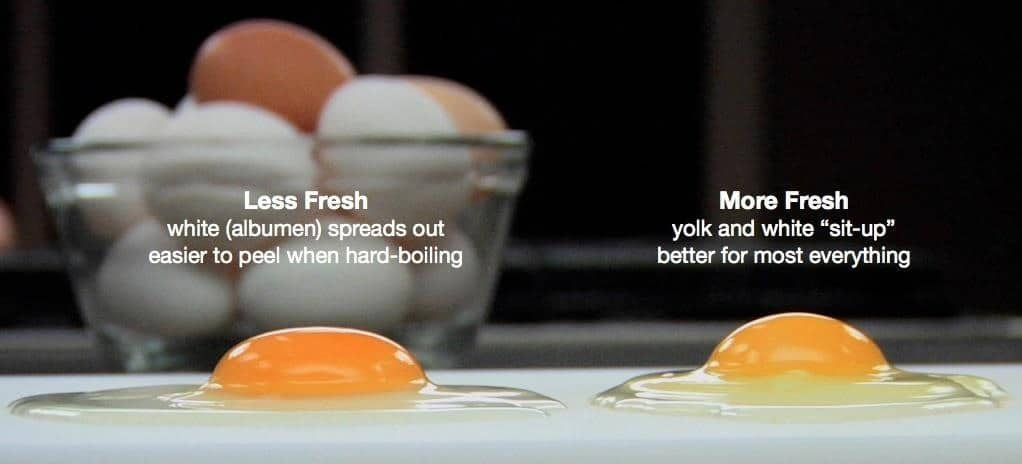A lot of people rely on the date on the packaging to tell them when food has gone bad, even with eggs, but the sell-by dates are often somewhat arbitrary and are not expiration dates. If you’ve been tossing your eggs based on the dates on your carton—you could be wasting perfectly good food.

The fact that the expiry date has passed results in the annual disposal of several million eggs.
Among the many nutritious foods that should be a part of a well-rounded diet, eggs have a shelf life of many weeks when stored in the fridge. Eggs are often still good to eat long after the date on the packaging says to throw them out. If you want to test how fresh they are before finding out the hard way, here are a few methods for testing them.
Your eyes and nose are the best tools for determining freshness with meats, produce and herbs — it’s pretty obvious when something’s moldy or smelly. But you can’t smell and see an egg before you crack it (unless you’re highly skilled), so how do you tell if it’s still good?
Are you planning to make brunch but aren’t sure how long the eggs have been in the fridge? Breathe easy. There are methods to determine if they are fit for human consumption:
1. Verify the use-by dates
There is a suggested use-by date on the package of every egg you buy at the grocery store.
Furthermore, as stated on the Femme Actuelle website, distributors are no longer allowed by French legislation to sell eggs seven days prior to the minimum durability date (Ddm) printed on the container.
However, there is no suggested use-by date on the eggs that you harvest from the henhouse. Hence, be aware that the Dlc cannot exceed 28 days following the day of laying.

Having said that, if the eggs’ shells are undamaged, you may keep them in the fridge for an extra month after the suggested use-by date (58 days from the day they were laid). The best way to keep food fresh, prevent mold, and reduce food waste is to store it in an ideal environment.
To prevent potentially harmful pathogenic microorganisms, strict adherence to the cold chain and all associated dates is required. So, placing eggs in the fridge keeps them fresh and healthy while also stopping germs from growing.
But, the protective layer that the hen deposits on eggs is delicate and should not be washed unless they are going to be eaten right away. But if you can’t see the expiration dates on the package, you’ll have to be creative.
2. Eggs in a dish – Recipe from Bon Appetit
Inhale the aroma of the egg

- Once the expiration date has gone, eggs, like other perishable goods, can have an unpleasant odor. This is especially true of desserts, crème fraîche, cheeses, and yogurts.
- If you want to save an egg after its expiration date but don’t want to throw it out just yet, give it a quick sniff.
- Do not consume food that has beyond its expiration date since it most likely has an unpleasant smell. They could not have enough vitamins and have changed flavor.
- Also, remember to never eat anything that has beyond its expiration date; doing so can be harmful to your health. Raw or cooked, eggs that have gone bad could smell bad.
- Registered dietician Taylor Jones suggests cracking an egg into a bowl or salad bowl and smelling it if you’re unable to read the label or rely on fragrance alone. If you’re not a fan of the aroma, simply discard the egg and wash the bowl with hot water. Even if the egg doesn’t smell bad, it’s still best to eat it right away—maybe in an omelette.
3. Verify the shell’s look
If you want to know if an egg is edible or has expired, you may also look at it.

To be safe, always check a product visually before eating it. The expert says you have to make sure the shell isn’t dusty, sticky, or broken.
The presence of mold might be shown by any suspicious look. Also, crack the egg into a basin and look for any strange discoloration, even if the shell seems dry and fine.
As a rule, the egg yolk or white will be a shade of green, blue, pink, or even black. The presence of harmful germs that might lead to food poisoning can even be shown.
Dr. Julia Roux, a gastroenterologist, has verified that eggs, raw or undercooked egg products, and dairy products all contain the bacterium salmonella.
Intoxication with symptoms including fever, diarrhea, vomiting, and stomach discomfort can be caused by these microorganisms, which is known as salmonellosis.
Another sign that an egg is getting on in years but still has some life left is if either the white or yolk is dripping out.
4. Wet the egg.
If you want to know if the egg is still edible, LCI says there’s another method that works.
The egg has to be submerged in water in a pot or salad bowl for this to work. No worries if it goes to the bottom of the container—it’s perfectly OK to eat.
However, it must be consumed promptly if it stays upright. It has expired if
If you want to know if an egg is edible or has expired, you may also look at it.
To be safe, always check a product visually before eating it. The expert says you have to make sure the shell isn’t dusty, sticky, or broken.
The presence of mold might be shown by any suspicious look. Also, crack the egg into a basin and look for any strange discoloration, even if the shell seems dry and fine.
As a rule, the egg yolk or white will be a shade of green, blue, pink, or even black. The presence of harmful germs that might lead to food poisoning can even be shown.
Dr. Julia Roux, a gastroenterologist, has verified that eggs, raw or undercooked egg products, and dairy products all contain the bacterium salmonella.
Intoxication with symptoms including fever, diarrhea, vomiting, and stomach discomfort can be caused by these microorganisms, which is known as salmonellosis.
Another sign that an egg is getting on in years but still has some life left is if either the white or yolk is dripping out.

The Best Method for Cracked Eggs: The Plate & Sniff Test
If you don’t need the shell intact, you can also crack the egg onto a plate or other flat surface to test how fresh it is. If it’s fresh, the yolk should be bright yellow or orange, and the white shouldn’t spread much. If you’re not sure, give it a good sniff: fresh eggs shouldn’t have much of a smell at all.
The yolk will be flatter and the white will be much runnier in an older egg. An egg that spreads out when cracked isn’t necessarily bad, though, just older (and again, good for hard-boiled eggs). If it’s gone bad, you probably won’t even need to do the sniff test—even slightly rotten eggs will have a very strong, distinct smell you’ll notice right away.
What to Do with Eggs That Expire Soon
Got a bunch of eggs that are going to go bad before you can use them? Hard-boil them and throw them in a jar with a beet brine to make tangy, delicious, and beautifully purple pickled eggs.





